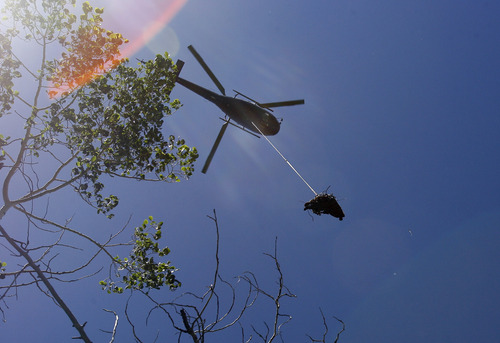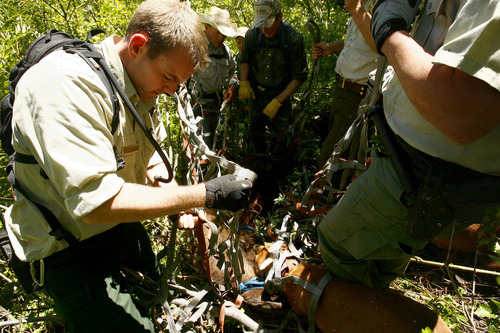This is an archived article that was published on sltrib.com in 2013, and information in the article may be outdated. It is provided only for personal research purposes and may not be reprinted.
The Utah Supreme Court "got it right" when siding with the family of a boy killed in a 2007 bear attack, a law professor said Thursday in a Trib Talk video chat.
The online Salt Lake Tribune discussion explored the recent Supreme Court decision in the case of Sam Ives, who died during a bear mauling in American Fork Canyon. At the beginning of the chat, Tribune reporter and editor Nate Carlisle — who has covered the case since it began — explained that the relevant timeline actually begins on June 16, a day before Ives arrived in the campground. At that time, a black bear entered a campsite and batted Jake Francom's head while he was in his tent. Francom's fellow campers then scared the bear away and reported the incident.
Officials responded to the area and searched unsuccessfully for the bear, but didn't warn Ives' family when they arrived on June 17. The bear dragged Ives from his tent that night and killed him. Ives' family later sued both the state and federal governments.
The Supreme Court ruling stated that government officials did indeed have a duty to protect campers.
George Mason University Associate Professor James Kozlowski praised the decision during Thursday's chat. Kozlowski pointed out that when officials tried to track down the bear, they created a special relationship — or a "duty" to protect — with potential campers in the area. After that time, Kozlowski said, they had a responsibility to warn people of any potential dangers.
"When you go into the back country, the land simply has to be as safe and as dangerous as it appears to be," Kozlowski said. "What you see is what you get."
Kozlowski also noted that the government wasn't immune to liability because the Supreme Court interpreted the law as saying a bear is not a "natural condition" on the land. Natural conditions were limited to topographical features in the ruling, though Kozlowski pointed out that "there's almost an invitation in the dissent for the Legislature to clarify natural conditions." He also said that in the decision the Supreme Court seemed to be trying to understand what lawmakers meant when they created the laws defining natural conditions and government liability.
As Tribune reporter and Thursday's host Jennifer Napier-Pearce later read several reader comments, Carlisle acknowledged that the court's choice to exclude a bear from the definition of "natural conditions" is "not intuitive." He also recalled statements from Ives' family, saying they were pursuing the lawsuits to prevent future situations.
But regardless, Kozlowski said he was "pretty comfortable" with the ruling because government policy included the mandate to warn campers.
According to Carlisle, the case now goes back to the district court in Provo where a trial could eventually ensue. The district court will now look at who shares responsibility for Ives' death.
In 2011, a federal judge awarded the family $1.9 million in a separate case, but ruled that they did share some of the responsibility. Kozlowski said Thursday that he also agreed with that decision.
Twitter: @jimmycdii





